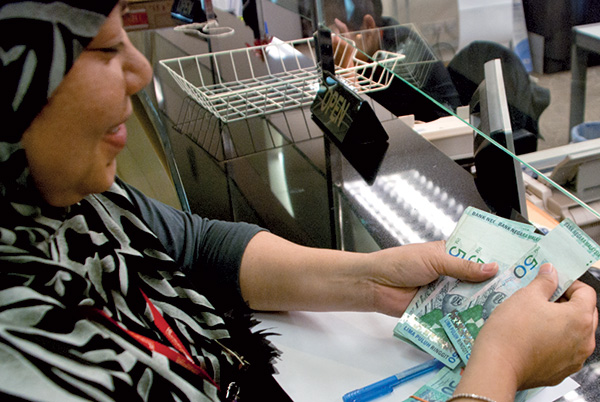
As one money changer explained, “No more ringgit” was just an excuse given by most money changers here when people kept asking for lower buying rate for the ringgit.
SINGAPORE: Plenty of Malaysian ringgit at Singapore money changers dismisses speculations that the currency has run out of supply here.
It was reported last week that some money changers had run out of the Malaysian currency as people stocked up on the plunging ringgit.
As one money changer explained, “No more ringgit” was just an excuse given by most money changers here when people kept asking for lower buying rate for the ringgit.
A Bernama check at most money changers easily accessible by the public, such as at The Arcade, People’s Park Complex, Parkway Parade, Bugis and Clarke Quay, saw the ringgit mostly selling at 3.20 to the Singapore dollar.
The money changers will then buy ringgit at as low as 3.05 to a dollar.
“Some are asking for a lower buying rate. We are offering 3.20 to a dollar,” said one money changer operator.
Not only the ringgit, most Asian currencies are also affected by one obvious factor – Donald Trump’s surprised US presidential election victory.
Back home, the Malaysian currency was traded between 3.03 and 3.10 since Nov 9, the day Trump won the election.
Nonetheless, Singaporeans too felt the pinch of the higher selling rate by local money changers here which triggered them to get a better rate in Malaysia.
“It is advisable to change Singapore dollar in Malaysia.
Even at the commercial bank, we can easily buy 3.16 to a dollar,” said a Singaporean who wanted to be known as Mrs Peter.
“The rate is too high here to get a ringgit. It is a school holiday now.
We would love to bring our kids to Malaysia and enjoy every ringgit that we can get from the lower exchange rate,” the mother of three said.
Bank Negara Malaysia Governor, Datuk Muhammad Ibrahim, was reported as saying last Friday that activities in the offshore market, in particular the ringgit non-deliverable forward (NDF) market, had brought on observable adverse impacts to the onshore market.
To add to the disappointment, onshore players had become followers rather than leaders in determining domestic market rates, he said.
Consequently, the governor said, taking the lead from the NDF market, the ringgit’s exchange rate has been quite volatile since last year, peaking at 23.1 per cent for its one-month historical volatility and was the highest among regional currencies for this year.
Of late, it has been trending down, but the average volatility remains high at 10.1 per cent compared to its five-year average of 8.2 per cent, he said. — Bernama
